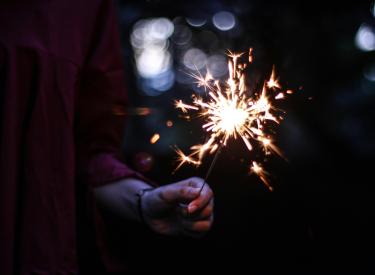
Surviving the Holidays While Sober
For people in recovery, the holidays can be a hard time. This season affects our emotions, thoughts, and behaviors, and is filled with countless activities and social events. When you’re learning how to navigate daily life without returning to unhealthy coping behaviors, this time of year can feel like a real gauntlet.
It’s important to protect yourself and your wellness throughout the holiday season. Here are a few tips that may help you redirect thinking and control urges to use during the holidays.
1. Develop some coping strategies with the help of a loved one. Enlisting a loved one (or a few!) to offer support is key. Brief them on what you’re going through and what you hope to achieve this holiday season. They can help make sure you stay on track, and be ready to offer some extra support whenever you need it.
2. Redefine the holiday. Not everyone has happy memories of past holidays. But the good news is that we can always recreate what a holiday means by making new memories and traditions. Mix it up, do some things differently. Organize a gathering with friends, old and new. Add a gratitude wreath in the entryway. Spend some time jotting down what you’re grateful for this year, or something that made you happy recently, or one new thing you discovered about yourself that excites you.
3. Create safe spaces, places, and activities. Take some “you” time before you head out to all those parties and dinners. Before the day’s festivities begin, take a long walk and experience nature. Being outside has proven to be an effective decompression technique for anxiety and stress.
4. Invite someone from your support network for the holiday. Even if they can’t be there for the whole day, maybe they can stop by before or after, or perhaps for appetizers or dessert. Having that “anchor” person present will make you feel more comfortable and stable.
5. Take time away from the family to attend a support meeting. It’s okay to take a break from the festivities in order to check in with yourself and your recovery. Go to a meeting, or ask a friend to meet you for coffee. This “time out” will help you keep your strength and resilience up.
6. Talk to your therapist. Line up at least one therapy appointment before the holidays to help you prepare, and an appointment or two after the holidays to help you process the events of the season.
7. Host an alcohol-free holiday gathering. If this is your first holiday season in recovery, give your family and friends the opportunity to show solidarity. Be creative with fun non-alcoholic drinks for everyone, like hot mulled cider. Offer a large selection of soft drinks and other non-alcoholic options, and your family and friends may take a page from your book at their next gathering!
8. Volunteer your time to serve those in need. Give yourself a healthy dose of perspective while helping people who are less fortunate. Homeless shelters, soup kitchens, meals on wheels or other volunteer organizations can use extra help all year, especially around the holidays.
9. Avoid confrontational conversations. The holiday gathering is not the time to discuss grudges, disappointments, or other unaddressed issues. Table those conversations for another time. If someone tries to bait you into a conversation like that, be the bigger person and resist engaging. Recreate the holidays in a new light, without the old baggage.
10. Focus on your recovery. Protect your wellness however you need to. Don’t ignore signs of discomfort, and disengage from situations that are unhealthy or triggering. Vent to a friend, take a walk, and protect your hard-earned progress—no matter what your nosy relative might think about it.
Anne Lopez is a Certified Peer Recovery Specialist and a woman in long-term recovery.




